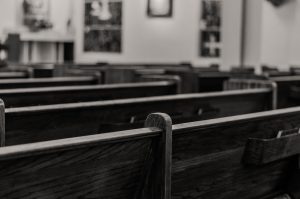CDC Eviction Moratorium: Three Things to Know

The CDC eviction moratorium, which came out in September 2020, remains in place through the end of January 2021, and will almost certainty get extended.
Here, I’ll discuss three things to know about the moratorium.
The Moratorium Only Applies to Non-Payment of Rent Eviction Cases
The CDC eviction moratorium, importantly, only applies to non-payment of rent cases. If a landlord is evicting for no-fault or evicting because the tenant broke a term of their lease, the moratorium does not apply.
Massachusetts, however, allows a landlord to assert a claim for unpaid rent in every type of eviction case . . . not just those for unpaid rent. For example, if a landlord is evicting because the tenant violated a lease term, the landlord can still make a claim for unpaid rent in that case, even if the unpaid rent is not the main reason for the eviction. It remains an unresolved question as to whether the CDC eviction moratorium applies in those circumstances.
Tenants Must Invoke the CDC Moratorium On Their Own
Importantly, the CDC eviction moratorium requires tenants to take the initiative for invoking these protections. A tenant must do so by providing their landlord with a signed declaration.
The CDC declaration includes some specific requirements for tenants, including an income restriction and a representation that the tenant is using “best efforts to obtain all available government assistance for rent or housing.”
When filing an eviction case, a landlord must file an affidavit with the court stating whether or not the tenant has invoked this declaration (a copy of this affidavit is included below). Landlords need to be especially careful with this requirement. A landlord’s failure to timely notify the court about a CDC declaration could lead to severe penalties and delay in eviction.
A Landlord Can Still Initiate An Eviction Under the Moratorium, But Will Be Delayed in Obtaining Possession
Compared to the prior state eviction moratorium in Massachusetts, the CDC moratorium still allows a landlord to file and proceed with an eviction case against a tenant. The main restriction under the CDC moratorium is that a landlord cannot obtain a court order for possession (“execution”) while the moratorium remains in place.
While there is still some inevitable delay to landlords in obtaining possession of a rental unit, the CDC moratorium is not a complete bar on evictions. For this reasons, landlords can and should move forward with an eviction case for non-payment of rent.
Final Thoughts
Although the CDC moratorium does delay the eviction process, it isn’t the end of the world for Massachusetts landlords, as eviction cases can still be filed. This, in my opinion, is critically important: the sooner that one of these cases begins, the sooner a resolution can be reached. Often, the mere filing of an eviction case is enough to move one of these matters along.
If you need assistance with a Massachusetts eviction, contact me for a consultation.
Affidavit